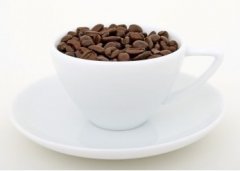Basic knowledge of boutique coffee yawning is equal to drinking coffee?

American scientists have found that yawning is not only a sign of boredom, but also helps cool the brain. The findings could explain many questions, such as why yawns are most common before and after waking up, why some diseases are characterized by yawning, and why breathing through the nose and cooling the forehead can stop yawning.
"the brain, like a computer, works most efficiently when the temperature is moderate," said Andrew Gallup, a scientist at the State University of Binghamton in New York, who led the study, Discovery Channel reported on the 15th. Our bodies also maximize the coolness of our brains. "
Andrew and colleagues studied a parakeet that lives in Australia. They divided the parakeet into three groups. The first group was in a rising temperature environment, the second group was in a higher temperature, and the last group was in a lower temperature. The experiment showed that the number of yawns in the latter two groups of parrots did not increase, while the first group of parrots yawned more than twice as often as normal.
"when the outside temperature exceeds the body temperature, the parrot does not yawn because the brain cannot cool itself by yawning and inhaling cold air," Andrew said. Do not yawn when the external environment is very cold, because the brain will inhale air much lower than the body temperature, which will cause it to suffer adverse stimulation. " Scientists now believe that birds and mammals yawn to cool the brain. If the external environment is cooler than the brain and body, inhaling air quickly can cool the blood flowing through the face and lower the temperature of the brain. Previous studies have shown that yawning can wake up the brain, and yawning early in the morning is tantamount to drinking a cup of coffee.
New research also explains why people tend to yawn when they are tired: physical drowsiness raises the temperature in the deep layers of the brain, prompting us to lower the brain temperature by yawning. In addition, yawning promotes the transition of the brain from one state to another, such as waking the brain from sleep.
People who yawn abnormally are likely to have a problem with the brain's temperature regulation system, and people with epilepsy yawn constantly before the attack, according to scientists. Yawning can also indicate that migraine sufferers will soon develop.
Important Notice :
前街咖啡 FrontStreet Coffee has moved to new addredd:
FrontStreet Coffee Address: 315,Donghua East Road,GuangZhou
Tel:020 38364473
- Prev

Basic knowledge of fine coffee do not drink coffee after drinking
In daily life, many people are used to drinking a cup of coffee after drinking, mistakenly thinking that good wine and coffee can sober up, but it is not. Nutrition experts point out that after drinking alcohol, alcohol is quickly absorbed by the digestive system and then enters the blood circulatory system, which in turn affects the gastrointestinal tract, heart, liver, kidney, brain and endocrine system, among which the most direct and serious victim is the brain.
- Next

Boutique coffee to learn how to drink coffee is the most nutritious?
Many people love coffee and can't even work without it. The magic of coffee is that it contains caffeine and more than 300 aromatic ingredients. Caffeine is an alkaloid that is originally a drug. Small amounts of caffeine can relax tension and ward off drowsiness. If consumed in large amounts, caffeine can be poisoned, causing gastritis and stomach ulcers. Drink coffee with some cream snacks, cheese, eggs, people
Related
- Beginners will see the "Coffee pull flower" guide!
- What is the difference between ice blog purified milk and ordinary milk coffee?
- Why is the Philippines the largest producer of crops in Liberia?
- For coffee extraction, should the fine powder be retained?
- How does extracted espresso fill pressed powder? How much strength does it take to press the powder?
- How to make jasmine cold extract coffee? Is the jasmine + latte good?
- Will this little toy really make the coffee taste better? How does Lily Drip affect coffee extraction?
- Will the action of slapping the filter cup also affect coffee extraction?
- What's the difference between powder-to-water ratio and powder-to-liquid ratio?
- What is the Ethiopian local species? What does it have to do with Heirloom native species?

